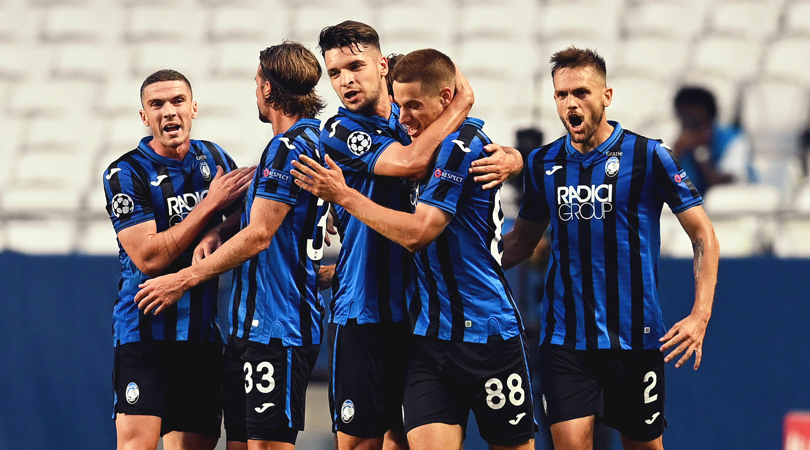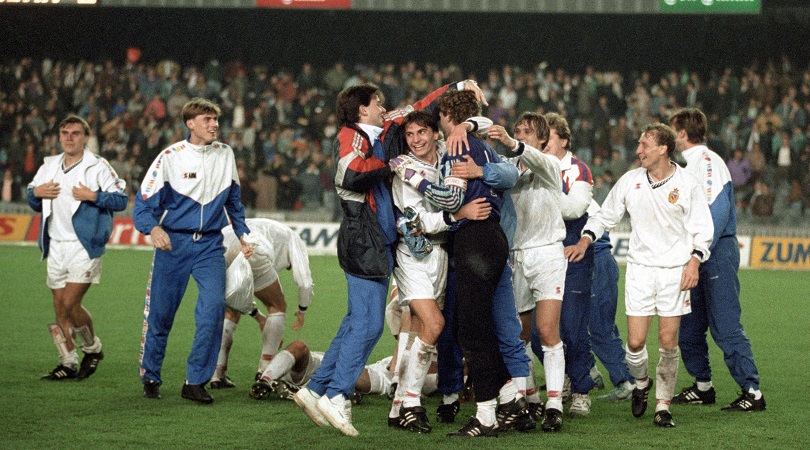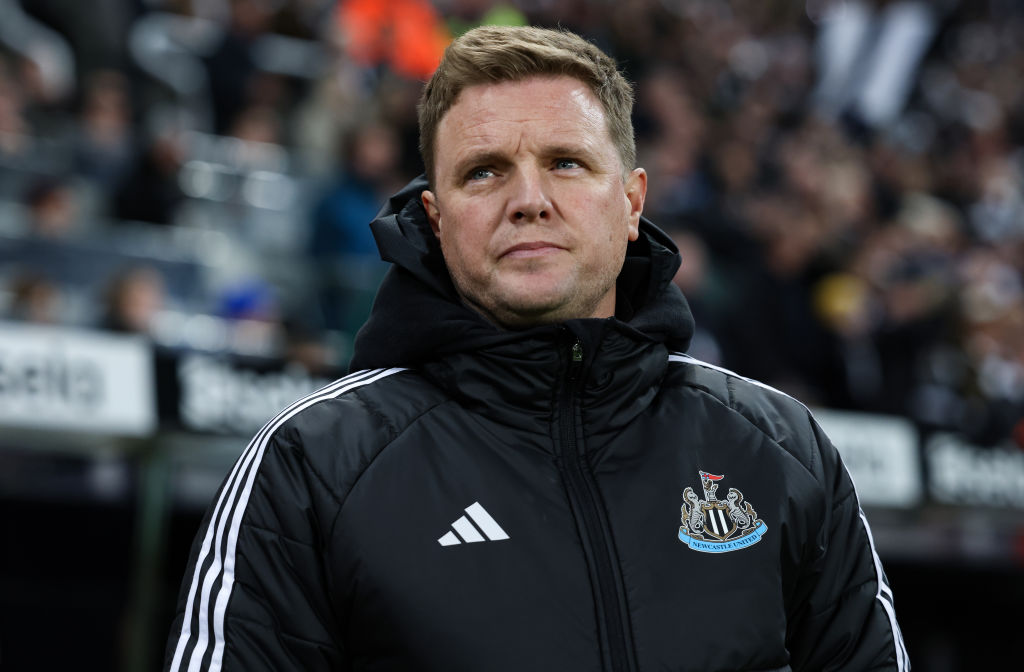Why powerful clubs really don't want the likes of Atalanta to succeed
Andrea Agnelli's comments on status quo of football are a worrying glimpse at a future where football has lost its origins and its history

Truth be told, I worry about my relationship with football. I can feel it changing.
On Wednesday night, the Champions League produced a dramatic comeback for the ages, with Paris Saint-Germain stealing two goals in the dusk to beat that wonderful Atalanta team. And it bored me.
It felt cruel, in the way it always does to see an underdog fall, but also tedious and unrelenting, confirmation that in football, today and most likely tomorrow, money will always, always win.
But that’s been true for a long time and it’s nothing that wasn’t confirmed many years ago. No, what’s really worrying is that football doesn’t want Atalanta. By football I mean the industrial complex. By Atalanta I mean any side that isn’t a major European power. The game doesn’t want these stories to exist. Because Atalanta don’t have a lot of fans, or the biggest stadium and the most decadent history, they’re treated as an inconvenience.
Actually, it’s worse than that. By implication, the desire for a European Super League portrays Atalanta as something which needs to be purified – as an undesirable agent in the rivers of milk and honey, or the pimple on the face of something which is fast becoming preposterously vain.

CHAMPIONS LEAGUE 6 brilliant European Cup matches you’ve probably never heard of
Last week, Juventus were eliminated from the Champions League. They were beaten fairly by Lyon and the tie was only really in doubt because of a ludicrously generous penalty decision. The French club are not perfect. Their season began in a hailstorm of dysfunction and with the quick dismissal of Sylvinho, their head coach.
And yet, 10 months on, their victory was still reward for being better – not richer and able to recruit better players, but better coached and better prepared, and for having the superior processes.
Get FourFourTwo Newsletter
The best features, fun and footballing quizzes, straight to your inbox every week.
We should always be able to say that at the end of a contest. Whether it be in the league or the cup, a standalone game or a two-legged tie, that should never not be the case. Victory should always be a result of process; that’s a universal sporting imperative.
Football doesn’t want that to be true anymore, though. Juventus are a reflection of their president and Andrea Agnelli, who also chairs the European Club Association (ECA), has long been an enemy of competition. Unashamedly so, on the evidence of these comments back in March 2020.
“I have great respect for everything that Atalanta are doing, but without international history and thanks to just one great season, they had direct access into the primary European club competition. Is that right or not?”
It’s such a repellent position. It casts clubs like Atalanta as golfers who qualify for the Masters, but who aren’t allowed through the gates of Augusta. They’re too scruffy, they’re not dressed right, they don’t part their hair in quite the right way.
The European Game by Daniel Fieldsend takes a look at how the biggest clubs in football are run, shedding insight into the mechanics of a top club's hierarchy and organisation. This is a must for anyone interested in how the elite run football.
And yet this is the prevailing view of those with lobbying power. The ideal, for them, is not only to allow the great wealth disparities to continue – the grander aim is actually to widen them exponentially – but to remove the possibility of failure altogether. For Atalanta, they believe, it should actually be harder. To return to the golfing metaphor, their qualifying mechanic shouldn’t even exist.
What such an attitude unwittingly reveals is that these people don’t think about football as a sport. By “access to the primary European club competition”, Agnelli wasn’t referring to the right to compete or the opportunity to bloody a few noses, but simply to collect a great wedge of cash. Atalanta shouldn’t have that ‘right’.
“I think of Roma, who contributed in recent years to maintaining Italy’s ranking. They had one bad season and are out, with all the consequent damage to them financially.”
It’s not fair that under-performance should result in lost revenue. That’s the prevailing belief. Football is just a game, and it’s too trivial a pursuit to allow financial futures to depend on its outcome. That’s what he’s saying.
PSG have waited a long time to reach the Champions League semi-finals...This means A LOT to them! ♥️ Heartbreak for Atalanta... 😩#Club2020 pic.twitter.com/ojkNN92U7wAugust 12, 2020
And he’s saying it because, at its highest level, football doesn’t want to be football anymore. It thinks it is above its origins and its history, and beyond getting its knees dirty in actual competition.
In that fabulous documentary about Ayrton Senna, at one point he’s questioned about his aggressive overtaking style and his apparent disregard for the established order in Formula One. His response was perfect.
“Being a racing driver means you are racing with other people and if you no longer go for a gap that exists, you are no longer a racing driver because we are competing.”
Football’s ambition is for there not to be any racing. Football doesn’t want anyone going for any gaps. In fact, football doesn’t want any gaps to exist at all.
Football doesn’t want its future shaped by football.
While you’re here, why not subscribe to the mag - get your first five issues for just £5, almost £25 cheaper than buying it in the shops!
NOW READ...
ATLETICO MADRID The Champions League's toughest team to beat? Meet RB Leipzig's biggest ever challenge: Diego Simeone
COMMENT Are Crystal Palace finally starting to see the value in youth?
GUIDE Premier League live stream best VPN: how to watch every game from anywhere in the world
Seb Stafford-Bloor is a football writer at Tifo Football and member of the Football Writers' Association. He was formerly a regularly columnist for the FourFourTwo website, covering all aspects of the game, including tactical analysis, reaction pieces, longer-term trends and critiquing the increasingly shady business of football's financial side and authorities' decision-making.

